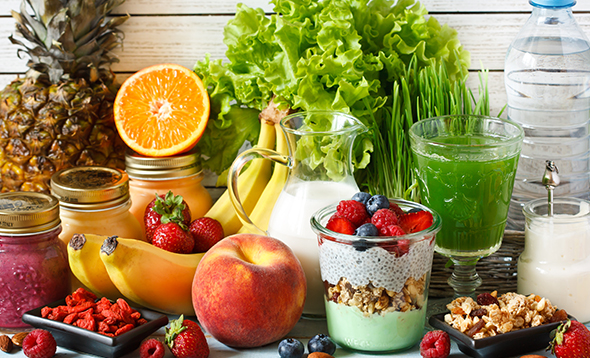That organic living is a conscious health choice
Managing Your Blood Pressure
Sodium
The oldest and most prolifically used seasoning, salt imparts its own flavour and brings to life all other ingredients in a recipe.
When managing hypertension, this basic seasoning becomes public enemy number one because of sodium. The main mineral in table, Celtic, kosher and other forms of salt, high levels of sodium can negatively affect blood pressure.
With a higher intake of sodium, the kidneys retain fluids and the volume of circulating blood increases, putting additional pressure on the arteries and veins. When pressures are chronically high, the heart and blood vessels are taxed, and the risk of heart attacks and strokes increases.
What can you do? Aim to keep to a daily sodium intake of less than 2,400mg. Beware of the sodium that’s lurking quietly in processed foods including canned items, snacks, instant noodles and fast food. Instead of liberally using the salt shaker when you cook, go for sodium-free condiments such as vinegars, fresh herbs and peppers that impart fresh flavours without affecting your blood pressure levels. Purchasing ‘no salt added’ alternatives and requesting for less salt or unsalted options when dining out will add up to your blood pressure controlling efforts.
Potassium
Together with sodium, potassium collaborates with the kidneys to regulate fluid levels. However, potassium offsets the effects of sodium and prevents the accumulation of excess fluids. Rather than match potassium and sodium milligram for milligram, a two to one ratio balances pressures best. Which foods are rich in this much-needed mineral? There are plenty of options including bananas, citrus fruits, papayas, tomatoes, sweet potatoes, squash, coconut water, lentils, white beans, salmon and halibut.
Calcium
While calcium is usually associated with bones, did you know that this mineral is also critical for expanding and contracting blood vessels? A daily intake of about 1,000mg to 1,200mg of calcium is required to help the circulatory system accommodate to changes to blood pressure. While plant-based sources – such as leafy greens and seaweeds – are great, research suggests that dairy products offer added benefit. Certain proteins in yoghurt and milk relax blood vessel walls and counteract sodium retention.
Magnesium
This mineral serves as the sidekick to calcium and potassium. Consuming 420mg of magnesium daily can alleviate tension in artery walls, decrease blood pressure and reduce the risk of a heart attack. This mineral is abundant in raw nuts, seeds, whole grains, raw cacao, leafy greens, soybeans and apples.


























_1672804154.jpg)

_1611290459.jpg)